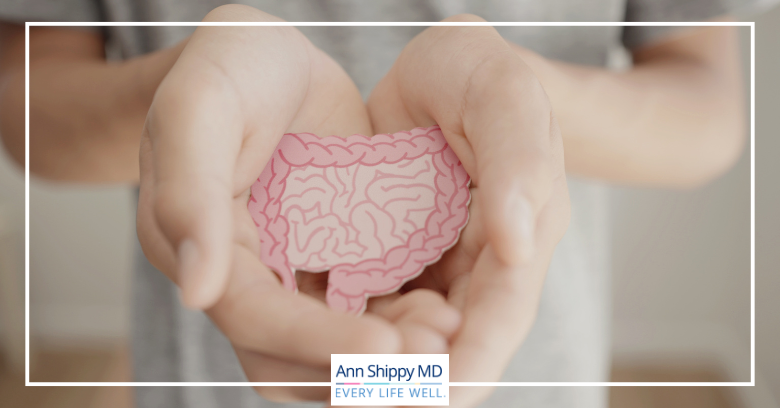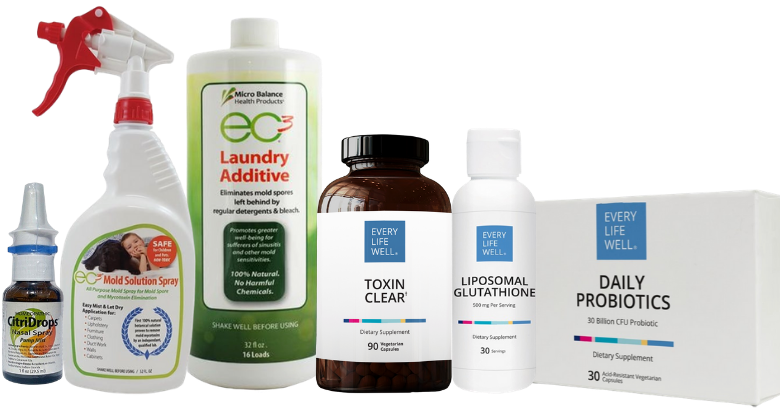Factors Affecting Fertility – How to Address Inflammation, Microbiome Health, Oxidative Stress, and More
Fertility is about more than having a baby; it’s a sign of health.
While this article is geared toward couples on their fertility journey, it is really for everyone.
By addressing root causes such as helping to improve metabolism and reduce inflammation, we improve overall health and wellness.
Couples with fertility challenges continue to increase, as do rates of medical interventions to support conception and pregnancy. However, fertility doesn’t exist in a vacuum, and it is connected to all the lifestyle and environmental inputs our body receives.
Please keep reading to learn more about the key factors that affect fertility, and lifestyle tools to optimize them.
These fertility factors include:
- Metabolic health
- Inflammation
- Microbiome balance
- Oxidative stress
- Detoxification
- Mitochondrial function
- Toxin burden
Subfertility
Infertility is defined as the inability to achieve pregnancy after 12 months of trying to conceive. Infertility affects 15% of couples.
The terms reduced fertility or subfertility are preferred to infertility. The alternate terms suggest that fertility can be improved and restored, which is true in many cases.
The Functional Medicine approach to subfertility looks at the underlying mechanisms that impact egg and sperm health, reproductive hormones, and the ability to conceive and maintain a healthy pregnancy.
If you are planning to get pregnant, are struggling with fertility challenges, have had miscarriages, or considering having another child, taking some time to explore these root cause factors may improve fertility and pregnancy outcomes.
Insulin Resistance and Metabolic Dysfunction
Dysmetabolic infertility is a new term that explores how metabolic health, or dysfunction, affects subfertility. It overlaps with polycystic ovarian syndrome, or PCOS, a complex, multifactor endocrine disorder that affects fertility.
PCOS is often, but not always, associated with insulin resistance and obesity.
In addition, genetic and epigenetic changes play a role.
Sixty to 70% of women with PCOS also have insulin resistance. Insulin, the main hormone involved in blood sugar regulation, becomes elevated and cells become resistant to its signals. PCOS may drive insulin resistance as well as vice versa.
Around two-thirds of those with PCOS have elevated testosterone levels. Because of these metabolic changes, women with PCOS take longer to conceive and have a higher risk of miscarriage.
Women with obesity also take longer to conceive, and in vitro fertilization (IVF) is less successful. Obesity is associated with insulin resistance and some of the other factors we’ll discuss, including inflammation and oxidative stress.
Inflammation
Chronic, low-grade inflammation affects egg and sperm quality, and the pregnancy environment. Inflammation correlates with ovarian aging and the decline in fertility as women get older.
Women with PCOS tend to have higher markers of inflammation.
We’ve discussed insulin resistance and obesity as potential causes of inflammation.
Other sources of inflammation include:
- Underlying low-grade infections
- Autoimmune disease
- Chronic metabolic diseases like cardiovascular disease or diabetes
- Inflammatory diet (seed oils, trans fats, sugar)
For couples going through IVF treatments, inflammation may explain IVF failure. In a recent study, researchers looked at follicular cells in patients who did IVF but did not become pregnant.
They found a change in epigenetic markers that aligns with inflammation.
Microbiome Imbalances
Microbiome health is another factor that affects fertility. Changes in hormones and insulin resistance are reflected in the microbiome. And since the microbiome is passed down from mother to child, microbiome shifts can affect the offspring’s future fertility also.
For example, elevated testosterone in the mother can cause dysbiosis (imbalanced organisms in the microbiome) in the infant, which increases future PCOS risk. This may be one mechanism by which PCOS tends to run in families.
Many microbiome patterns have been discovered associated with PCOS. For example, women with PCOS tend to have decreased levels of bifidobacteria and lactobacilli.
In addition, higher levels of Bacteroides vulgatus are seen in PCOS. This bacteria strain is related to inflammation, insulin resistance, and reduced fertility.
Oxidative Stress
Oxidative stress is an imbalance between free radicals that can damage cells and antioxidants that protect them. Free radicals result from normal metabolic processes but increasingly from exposure to environmental toxins.
Egg and sperm cells are particularly susceptible to oxidative stress, which can lead to the poor quality of these cells. Oxidative stress may be a root cause of poor egg quality, but poor egg quality may also lead to increased oxidative stress.
In couples undergoing fertility treatment, markers of oxidative stress levels were associated with reproductive outcomes, although more research is needed in this area.
Detoxification
Toxins contribute to oxidative stress, which compounds when the body can’t effectively detoxify. Toxins from plastic, air pollution, pesticides and herbicides, and personal care products correlate with decreased fertility.
While one step is to eliminate the toxin exposures within your control, another step is supporting detoxification pathways to effectively remove toxins.
Interestingly, these are the same pathways in the liver required to detoxify estrogen and maintain healthy hormone balance.
How To Improve Fertility with a Root Cause Approach
It’s not always possible, but when it is, taking time to optimize health before trying to conceive is time well spent.
We recommend taking at least three months to optimize diet and lifestyle factors to improve egg and sperm quality, nutrient absorption, hormone balance, and epigenetics.
Taking a root cause approach and looking at the fertility factors outlined here sets the body up for a healthy pregnancy.
1. Use food as medicine. Food is such an incredibly powerful tool and can support many of these fertility pieces. Eating a whole-food, Paleo diet will help to support:
- Blood sugar balance and metabolic health. Eat balanced meals with quality protein and healthy fats.
- Antioxidant status to protect egg and sperm health. Eat an abundance of colorful produce, nuts, seeds, herbs, spices, and teas.
- Detoxification. Support detoxification with cruciferous vegetables, leafy greens, and flax seeds.
- Microbiome balance. Eat fiber-rich plant foods and fermented foods. More below.
- Inflammation. Choose whole foods and work to eliminate inflammatory processed foods.
For specific nutrition strategies for fertility, read my article on preconception nutrition.
2. Improve metabolic health. This might mean implementing nutrition and movement strategies that help your body find a happy weight for your body. Rather than simply focusing on weight loss, address the underlying reasons, often hormone imbalances, that make it more challenging to lose weight.
Your Functional Medicine doctor can offer appropriate testing and interventions. For example, myoinositol, a supplement often used for PCOS, helps improve insulin sensitivity, egg quality, and fertilization.
3. Support the microbiome. While microbiome changes are complex, the microbiome responds well to changes in diet and lifestyle factors. Shifting the microbiome also shifts inflammation and metabolic health.
A high-fiber, high-polyphenol diet supports beneficial bacteria. Probiotic supplements and fermented foods supply beneficial bacteria in the gut. Many lifestyle tools like meditation, sleep, and stress management strengthen the gut-brain connection and optimize digestion and detoxification.
4. Use fertility-specific antioxidant supplements. Coenzyme Q10, or CoQ10, is an essential mitochondrial antioxidant. Reduced levels may impair fertility.
On the other hand, using CoQ10 supplements in preparing for pregnancy may help to reduce oxidative stress and improve mitochondrial function to improve egg quality.
N-acetyl cysteine, or NAC, is another antioxidant compound. It is the precursor to glutathione, the body’s master antioxidant, and helps to reduce oxidative stress and improve egg quality.
In a study of PCOS patients, NAC supplementation increased ovulation rates, pregnancy rates, and decreased miscarriages.
Liposomal glutathione is also one of the supplements I recommend taking for reducing oxidative stress and toxin load.
When we peel back the layers, we can uncover what’s below the surface that may impact fertility. Hidden inflammation, oxidative stress, or metabolic imbalances may affect reproduction but aren’t typically on the radar of OBGYNs.
Including a Functional Medicine practitioner on your fertility team is a valuable addition.
And even beyond fertility, the factors discussed here will support overall health and wellness for a long and healthy life.
References
- Female infertility in the era of obesity: The clash of two pandemics or inevitable consequence?
- Polycystic Ovary Syndrome in Insulin-Resistant Adolescents with Obesity: The Role of Nutrition Therapy and Food Supplements as a Strategy to Protect Fertility – PMC
- Female Fertility and the Nutritional Approach: The Most Essential Aspects – PMC
- Gene expression analysis of follicular cells revealed inflammation as a potential IVF failure cause – PMC
- Urinary oxidative stress biomarker levels and reproductive outcomes among couples undergoing fertility treatments – PMC
- Coenzyme Q10 restores oocyte mitochondrial function and fertility during reproductive aging – PMC
- Effect of N-acetyl-cysteine after ovarian drilling in clomiphene citrate-resistant PCOS women: a pilot study













